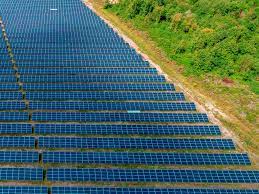The 50MW Bwengu solar photovoltaic project in Malawi is set to benefit from a US $10M shot in the arm. The funds will come from Vidullanka in the form of a JV share investment for the first phase of development. This was revealed through a Fitch Ratings report.
The solar PV Power Plant will spread over 105 hectares of land. The implementation of the project is in line with the government’s ambition to generate 1,000 MW by 2025. Prior to this project, Malawi had an installed solar power of around 24 MW at the end of 2020.
With a population of 19 million people, the nation has a power generation capacity of 363 MW, 90% coming from hydropower. Additionally, access to power in Malawi’s rural areas is currently only 4%, with 42% in urban areas. Overall, electricity access is only 11% and the government aims to increase that figure to 30% by 2030.
Also Read: Financing agreement signed for Dwangwa solar project in Malawi
Vidullanka, the 50MW Bwengu solar photovoltaic project investor in Malawi awarded multiple ratings
Fitch Ratings recently assigned a National Long-Term Rating of ‘A+(Ika)’, with a Stable Outlook, to Vidullanka PLC. Moreover, the agency has assigned a National Short-Term Rating of ‘F1(lka)’ to Vidullanka’s two issuances of unlisted commercial paper of Rs.100 million.
Fitch said the ratings reflected Vidullanka’s weak counterparty, the Ceylon Electricity Board (CEB, B(lka)/Stable). Additionally, this is offset by the power producer’s relatively strong cash flows from overseas operations and small operating scale. Furthermore, long-term power purchase agreements (PPAs), with fixed tariffs and modest financial profiles, amid a significant increase in domestic funding costs.
Fitch said Vidullanka’s ratings are constrained by its exposure to the CEB, the sole electricity transmitter and distributor in Sri Lanka, which has a weak credit profile.

